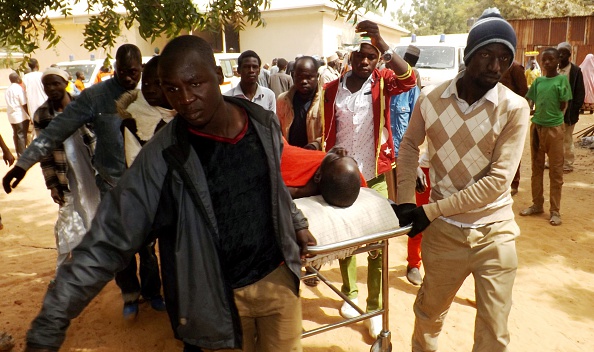
[UPDATE: The Nigerian presidential elections have been postponed to March 28, 2015.]
In the Nigerian presidential elections on February 15th, and after a year of conflict spurred by attacks by the armed group Boko Haram, one would expect security issues to be the top topic of debate. However, in his New Years address to the nation, President Goodluck Jonathan, the incumbent in the election, placed little emphasis on the severity of the violence in the northern regions of the country. Instead, he devoted a majority of the speech to his commitment to the oil industry and other topics of infrastructure and development.
Since the abduction of almost 300 girls in Chibok last spring and hundreds of others since then, there has been a significant push for a stronger security initiative to protect Nigerian citizens in the northern territories, where the armed group Boko Haram has wreaked destruction and mayhem. One of the loudest voices calling for improved security was the #BringBackOurGirls campaign last summer that started in Abuja but was then taken up by Nigerian diaspora communities around the world.
Sadly, since then, the Nigerian government has been accused of egregious and systematic human rights violations, including “indiscriminate arrest, detention, torture, and extra-judicial killing of those suspected to be supporters” of the armed group. Further, the Nigerian president has been criticized domestically and internationally, by both the media and by public officials, for his military’s failure to effectively counter Boko Haram’s territorial advances, showing that the brutal methods of the country’s security forces are not having the results they were boasted they would produce. According to the Nigeria Security Tracker of the Council on Foreign Relations, almost 3,000 people have been killed by the hostilities between Boko Haram and the Nigerian government since September 2014, with most of the conflict concentrated in the northeastern regions of Borno and Adamawa. This has been accompanied by more abductions and bombings.
In the first week of 2015, Boko Haram raided numerous villages in Baga, killing an estimated 2,000 people and forcing tens of thousands of people to flee across the border into Chad. Additionally, the armed group gained control of a major multinational army base, further refuting President Jonathan’s claims that the situation has improved in any regard since last summer.
The failure to effectively address the security situation has caused massive backlash against President Jonathan and his administration and will likely lead to one of the closest Nigerian elections in recent history. This once would have been nearly unthinkable since Jonathan’s party, the Peoples Democratic Party (PDP), took the majority of the electorate over a decade ago. The primary opposition party, the All Progressives Congress (APC), officially nominated Muhammadu Buhari as its candidate in December after a landslide win in the primaries. Given his military background, Buhari’s supporters are convinced that he will take a more serious and effective stance against Boko Haram. However, during his tenure as a former head of state, Buhari’s poor human rights record should give pause to hopes for better leadership from Abuja on accountability for human rights violations by the Nigerian military.
The Nigerian government must be held accountable for establishing professional, accountable police and military forces throughout the entire country, particularly in regions where security is a primary concern. The upcoming elections must not be allowed to distract national and internal pressure on the Nigerian government to meet its responsibility protect its citizens, and secure the safe return of all individuals abducted by Boko Haram, including the Chibok girls. These problems will not go away on its own after the next president is elected.
Caroline Courtney contributed to this post.
